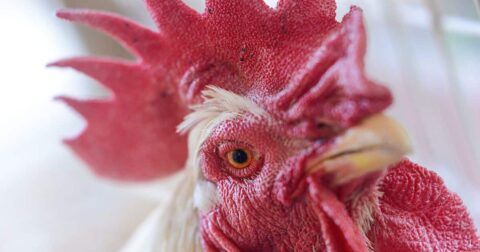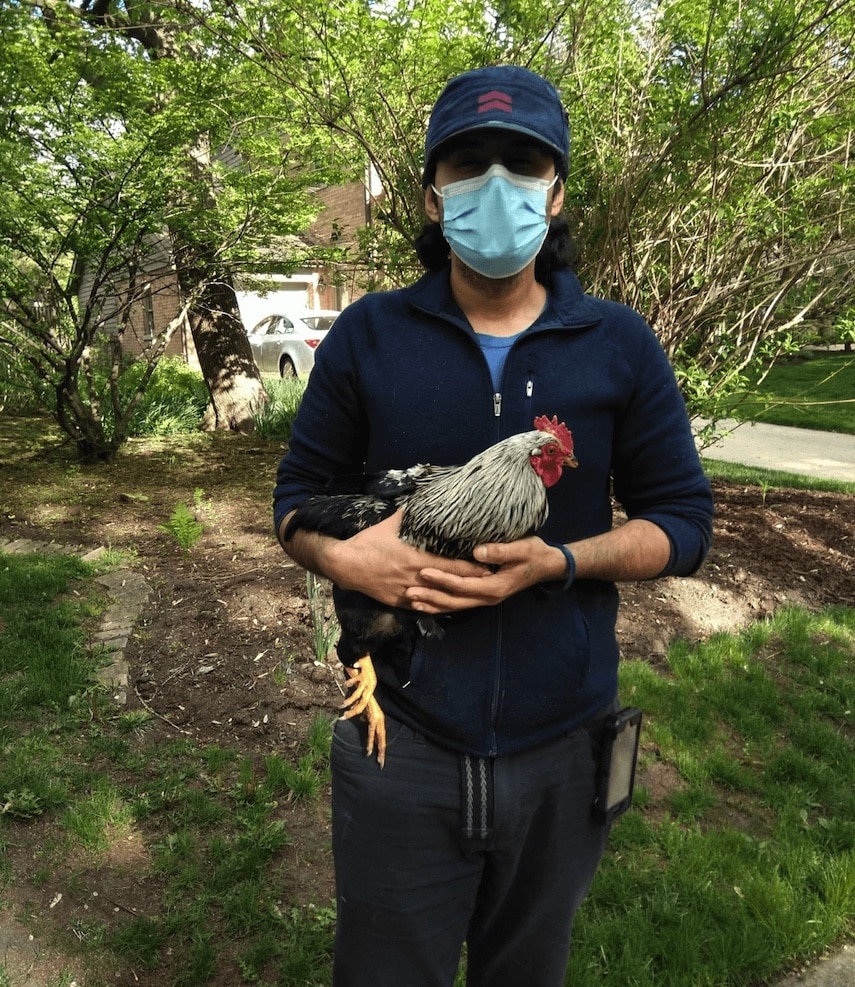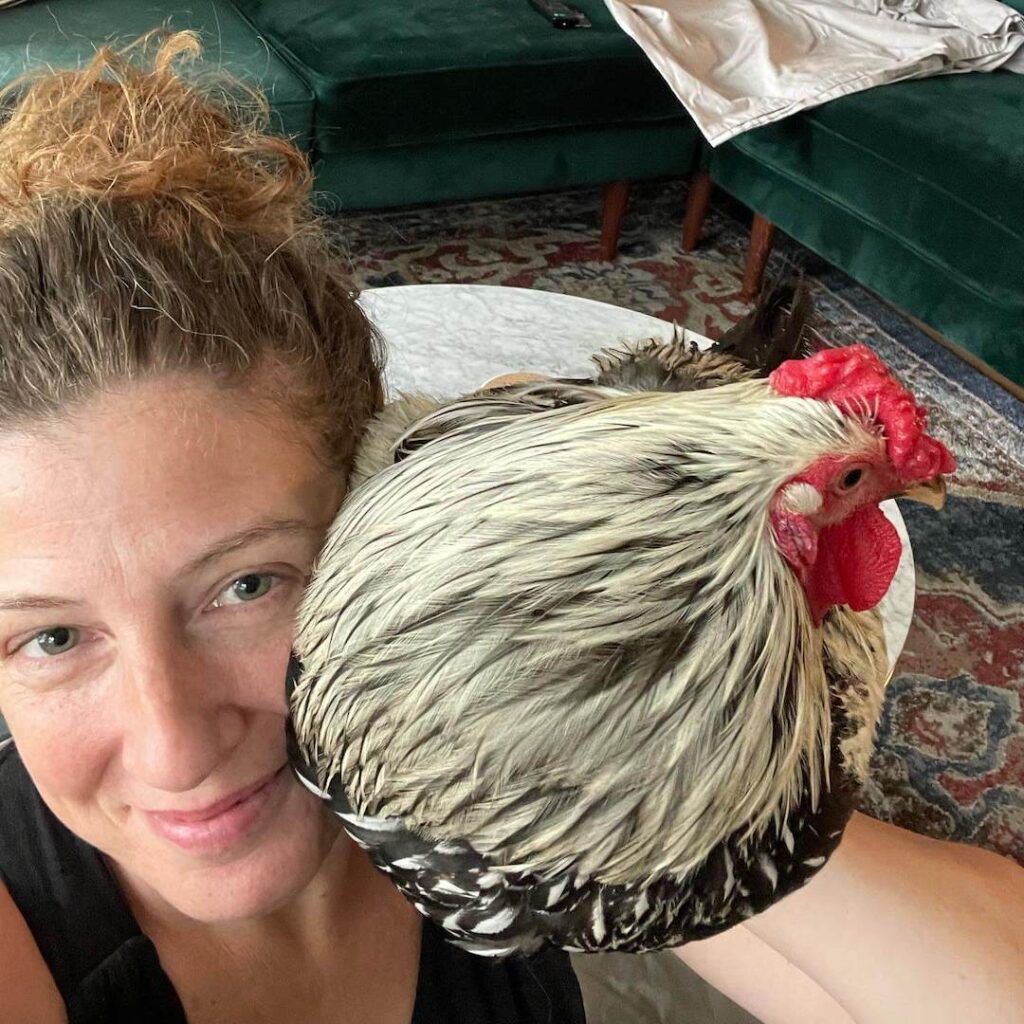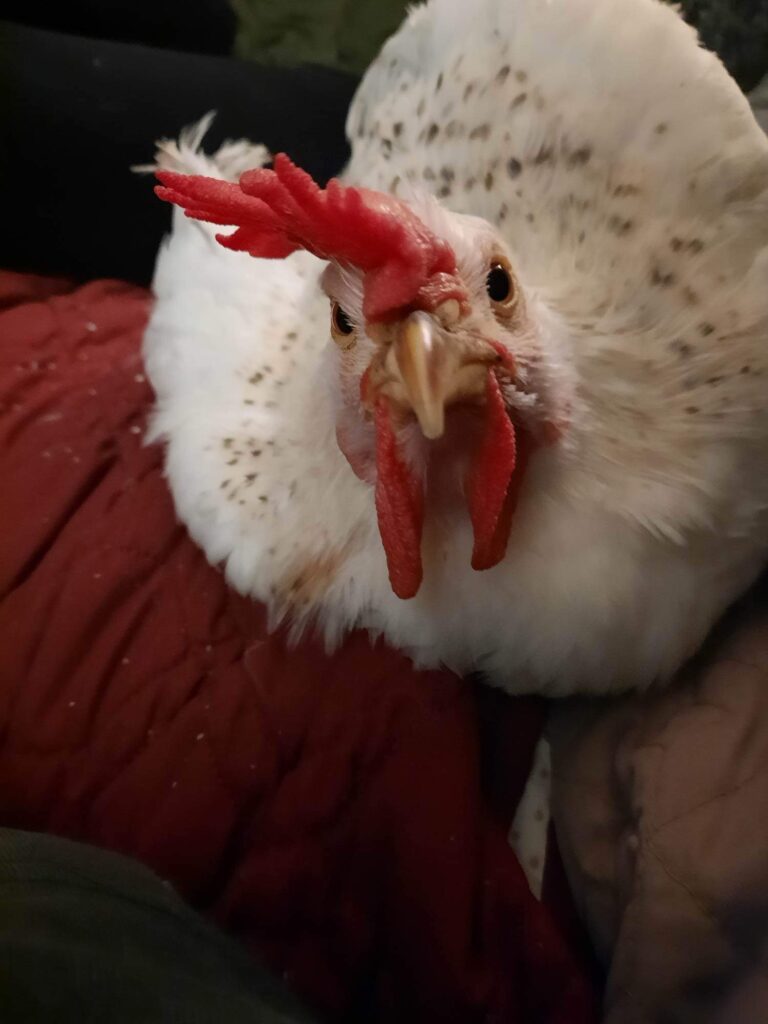News
A Major Agreement to Protect the Amazon Is Falling Apart After 20 Years
Climate•6 min read
Reported
The Latinx-led Chicago Roo Crew rescues roosters and works with the communities who keep and protect them.

“I wish people could just adopt them, instead of buying them from breeders, because we have so many roosters and hens,” says José Alberto Pérez, an organizer with the Chicago Roo Crew, a grassroots network of rescuers, foster homes and microsanctuaries based in the Chicago area. In his work with the Roo Crew to rehome birds, Pérez has taken groups of roosters to Indiana, southern Illinois and Kentucky for forever home placement. But it’s also legal in Chicago to keep roosters at your house. Like other Roo Crew members, Pérez keeps roosters in his family’s backyard in the city, though his retired parents spend the most time with the birds while he works during the day driving a truck.
The Roo Crew is known for its members’ dedication to direct animal care — the transport of chickens, taking them to vets and fostering and rehabilitating them — but what makes them unique in the sanctuary movement is their Latinx membership. In other animal rights campaigning work that Pérez does, there are almost no Latinx* people doing the work.
Pérez was born in Michoacán, Mexico, and came to Chicago when he was five years old in 1990. In a sanctuary city where there are largely no restrictions on keeping animals traditionally considered to be “livestock,” and where immigrant communities commonly keep animals in urban settings, Chicago Roo Crew stands for the proposition that both roosters, and the communities who compassionately keep and cherish them should be supported, embraced and not stigmatized.

An entirely grassroots group since its inception in 2018, Chicago Roo Crew has been — with one notable exception in José Pérez — comprised entirely of female rescuers, and is organized largely by Latinx animal rescuers. The Crew started as a small group of women who loved birds, particularly parrots and chickens. The initial founders would see or respond to calls regarding both wild and domesticated birds in need of help in the Chicago area.
The group has since developed into a symbiotic ecosystem of rescuers, transporters, foster homes and microsanctuaries, both within the Chicago community and beyond to help bring farmed animals to safety and sanctuary. It now operates as a collective, with a non-hierarchical decision-making process based on mutual aid principles.
When people first meet the Roo Crew, it’s usually through a Facebook post regarding a stray bird in Chicago. Pérez was already active in vegan advocacy and animal rights activism in Chicago when he stumbled on a post from the Roo Crew. “Somebody dumped a rooster in a forest preserve. And they couldn’t catch them,” Pérez said.
Rebecca Slusher learned about Roo Crew through Facebook groups that helped her take care of her own chickens: “I really, really got to learn about them when I was notified of an abandoned chicken in the dead of winter. It was [about] -10 degrees. A friend of a friend posted on social media that a chicken had been abandoned by her dumpster in a box. And I reached out to some folks that I knew who directed me to the Roo Crew,” she said.

When people would post abandoned chickens in local Facebook groups, more often than not, Slusher would run to her car. “Not everybody is willing to just go and search a park for the box,” she said. “I had the resources and flexibility of schedule to do that.”
Soon enough, according to Slusher, “[The Crew] reached out and said, hey, work with us, do you want to be a part of this?”
The group truly coalesced as a function of a cockfighting bust in 2019 of 114 birds, according to several members. Mentored by Farm Bird Sanctuary, a trans-led small farmed bird sanctuary in Wisconsin, and with the assistance of local sanctuary Chicago Chicken Rescue, Roo Crew helped all 114 ex-fighters find new homes.
Cockfighting is a form of rooster exploitation for human entertainment, in which humans manipulate rooster bodies and emotions in order to force them to fight each other, often to the death. Illegal in all 50 states and U.S. territories, it persists in part because of its association with high stakes gambling. While cockfighting is an ancient ubiquitous practice worldwide, in the U.S. it is often associated with communities of color, despite the fact that some of the largest cockfighting operations (and therefore the highest stakes gambling) are found in rural white communities.
After the police seized the ex-fighters from the 2019 cockfighting bust, “I helped rehabilitate and rehome them,” said Roo Crew organizer Pérez. He and other members worked free of charge for CACC, the city shelter. “Even for the Fourth of July, while people were having fun, we were there to clean up all the poop and stuff for them so they could be in clean cages.”

Pérez and others feared that the city shelter would euthanize the animals. But the Roo Crew helped convince shelter staff not to do so. Initially CACC staff were not aware of how to handle birds and roosters, says Pérez, as they preferred to reserve space for cats and dogs. “But [Roo Crew] spoke with CACC and told them by a certain time, we would get them adopted, and we did.”
Many compassionate adopters of these roosters were members of the Chicagoland Latinx community. In highlighting Latinx adopters such as Pérez and others, the Roo Crew hoped to show the inherent compassion in their community and combat the stereotype that Latinx people perpetuate cockfighting instead of serving as compassionate rescuers of these birds.
As Chicago Roo Crew grew and became known within the Chicago community, in 2019, the Crew spoke out against a proposed rooster ban in Chicago, which would have heavily impacted rooster-keeping Latinx people in the city, group members report. Knowing that Latinx people would be the first people targeted by the implementation by the potential fines imposed by such an ordinance, and likely the last to learn about its licensing and compliance requirements, the Crew collaborated with unlikely partners such as urban agricultural groups to educate the public regarding roosters, as well as maintaining ongoing partnerships with sanctuaries such as Farm Bird Sanctuary, Little Bluestem Sanctuary and Tiny Hooves Sanctuary. At all the outreach events in which Crew members have participated, they make sure to have Spanish speaking organizers participating in order to serve the Latinx community members who may come up wanting to know more about compassionate care and adoption.
In their ongoing work involving their local Latinx community, the Chicago Roo Crew members report that they are working to publish all public social media posts in both Spanish and English. The group already also provides support in Spanish (and sometimes other languages) for community members seeking help and advice on rooster care and retention, as well as those who wish to adopt and embrace these birds.
Kate Carlock, the director of Little Bluestem Sanctuary, who is white and works with the Roo Crew, said, “In the vegan community, there’s an overwhelming dominance of what we know as white veganism, [which] has overtones of white supremacy.” In contrast, in her work with the Roo Crew, Carlock sees predominantly Latinx, neurodivergent and women organizers as supportive and knowledgeable experts in animal rescue.
*Note on language. The term Latinx is used in this article because Latinx Roo Crew members have generally agreed upon this term for themselves.